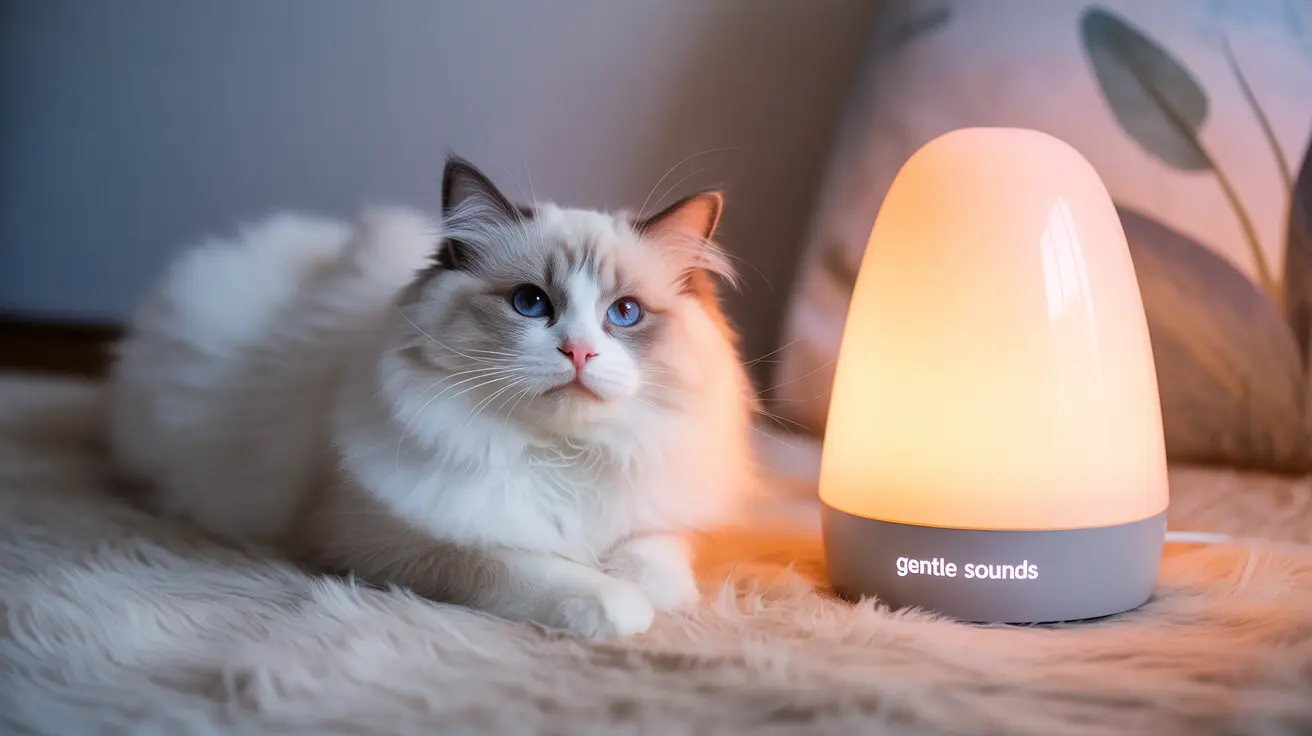For cat owners seeking ways to keep their feline friends calm and comfortable, the question of whether cats like white noise often comes up. With their incredibly sensitive hearing and complex relationship with sound, understanding how cats respond to white noise can be crucial for creating a stress-free environment.
In this comprehensive guide, we'll explore the relationship between cats and white noise, examining how this constant sound can affect their behavior and whether it might be a useful tool for managing feline anxiety.
Understanding Cat Hearing and Sound Sensitivity
Cats possess remarkably sophisticated hearing capabilities, detecting frequencies up to 64,000 Hz – more than three times what humans can hear. This enhanced auditory perception means they're particularly sensitive to sounds we might not even notice, including high-frequency noises from electronic devices or household appliances.
This heightened sensitivity can make cats vulnerable to stress from various sound sources in their environment, affecting their overall well-being and behavior.
How White Noise Affects Cats
White noise creates a consistent sound backdrop that can help mask sudden or disturbing noises that might startle or stress your cat. Think of it as an acoustic shield that helps create a more predictable sound environment for your pet.
- Blocks out unexpected sounds that might cause anxiety
- Creates a steady, predictable sound environment
- Can help mask outdoor noises like traffic or construction
- May aid in reducing separation anxiety
Choosing the Right White Noise for Your Cat
When introducing white noise to your cat, consider these important factors:
- Volume level: Keep it low and gentle
- Sound type: Pure white noise vs. nature sounds
- Placement: Position sound sources away from your cat's primary spaces
- Duration: Start with short periods and observe your cat's reaction
Signs Your Cat Enjoys White Noise
Look for these positive indicators:
- Relaxed body posture
- Normal sleeping patterns
- Choosing to rest near the sound source
- Reduced startling at sudden noises
Signs White Noise May Be Causing Stress
Watch for these warning signs:
- Ears flattened or twitching
- Excessive grooming
- Hiding behavior
- Changes in appetite or litter box habits
Creating a Sound-Safe Environment
To optimize your cat's sonic environment:
- Maintain a consistent volume level
- Provide quiet spaces where your cat can retreat
- Consider using white noise only during specific stress triggers
- Keep sound sources at a reasonable distance from key cat areas
Frequently Asked Questions
Do cats like white noise, and does it help calm them down?
Cats vary in their response to white noise. While some find it calming and helpful for blocking stressful sounds, others prefer quiet environments. The effectiveness depends on the individual cat's personality and anxiety levels.
What kind of white noise is best for calming anxious cats?
Pure white noise or gentle nature sounds at a low volume typically work best. Avoid harsh or fluctuating sounds that might startle your cat. The sound should be consistent and barely noticeable.
How do I introduce white noise to my cat without causing more stress?
Start with very low volume levels for short periods, gradually increasing duration if your cat shows positive responses. Always provide a quiet space where your cat can retreat if needed.
Can white noise machines help cats with noise phobias during thunderstorms or fireworks?
Yes, white noise can help mask the sudden, loud noises associated with storms or fireworks. Start the white noise before the anticipated event for best results.
Should I use white noise if my cat prefers a quiet environment?
If your cat shows signs of stress with white noise or clearly prefers quiet, it's best to avoid using it. Every cat is different, and forcing white noise on a cat that prefers silence may increase anxiety.
Conclusion
While white noise can be a valuable tool for creating a calming environment for some cats, it's essential to pay attention to your individual cat's preferences and reactions. Start slowly, observe carefully, and adjust according to your cat's response. Remember that what works for one cat may not work for another, and that's perfectly normal.






